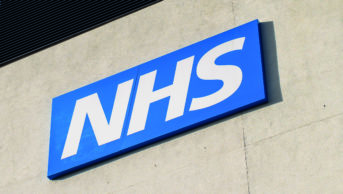
Craig Holmes Premium / Alamy Stock Photo
Half of NHS trusts now outsource their outpatient pharmacies in an effort to save on tax, according to NHS figures, despite union leaders saying this practice is detrimental to staff pay.
Figures from the most recent ‘Pharmacy and Medicines Optimisation Benchmarking Project’ report, published in December 2019, show that 50% of the 106 NHS trusts that supplied data have a ‘subsidiary’ outpatient pharmacy — 34% of trusts had outsourced the service to a commercial firm, with 16% having created a ‘wholly owned subsidiary’ (WOS) pharmacy.
Subsidiary pharmacies allow NHS trusts to avoid paying VAT on medicines bought by making use of an existing tax exemption, which states that hospitals can “enter into a contract with a third-party pharmacy company to operate a pharmacy in the hospital to dispense qualifying goods to outpatients”, with these “qualifying goods” being exempt from VAT.
However, the union Unison said the use of WOS pharmacies — which are arm’s-length companies that are still owned by the trust — can disadvantage the pharmacists that work for them.
Helga Pile, deputy head of health at Unison, told The Pharmaceutical Journal that outsourcing outpatient services “creates major concerns about quality and accountability”.
“The reality is that staff working for these companies will often be earning significantly less than colleagues who are employed directly by the NHS,” she added.
In a position statement, Unison explained that staff transferred from a trust to work on a WOS retain their NHS pension under government ‘Fair Deal’ guidance. However, the union added that many subsidiaries provide inferior pension arrangements to new starters.
Unison has also previously said that it considers the use of WOS to be a form of backdoor privatisation.
Ewan Maule, vice president of the Guild of Healthcare Pharmacists (GHP), which represents hospital pharmacists, said the use of WOS pharmacies “can be preferable to true privatisation”.
New recruits hired into a “traditional outsourced provider” would not be on NHS terms and conditions “which could be significantly worse,” he said, adding that pharmacists who apply for another job, such as a promotion, in the new organisation would also lose these.
Maule said GHP’s view was that keeping the pharmacy service within the NHS was “the appropriate way to provide an NHS service” and criticised the VAT exemption that encourages the use of a WOS as “ludicrous”.
“It avoids the payment of VAT to the Treasury, but from the NHS which is funded by the Treasury so it’s a zero-sum game,” he said.
“By some distance, our preferred outcome would be that the government would end this system and create a level playing field for all where staff do not pay the price for farcical tax loopholes,” he said.
Lord Carter’s 2016 review of efficiency in hospitals suggested that trusts should consider outsourcing “their outpatient dispensing services” to community pharmacy providers.
- This article was updated on 24 January 2020 to clarify Maule’s position


